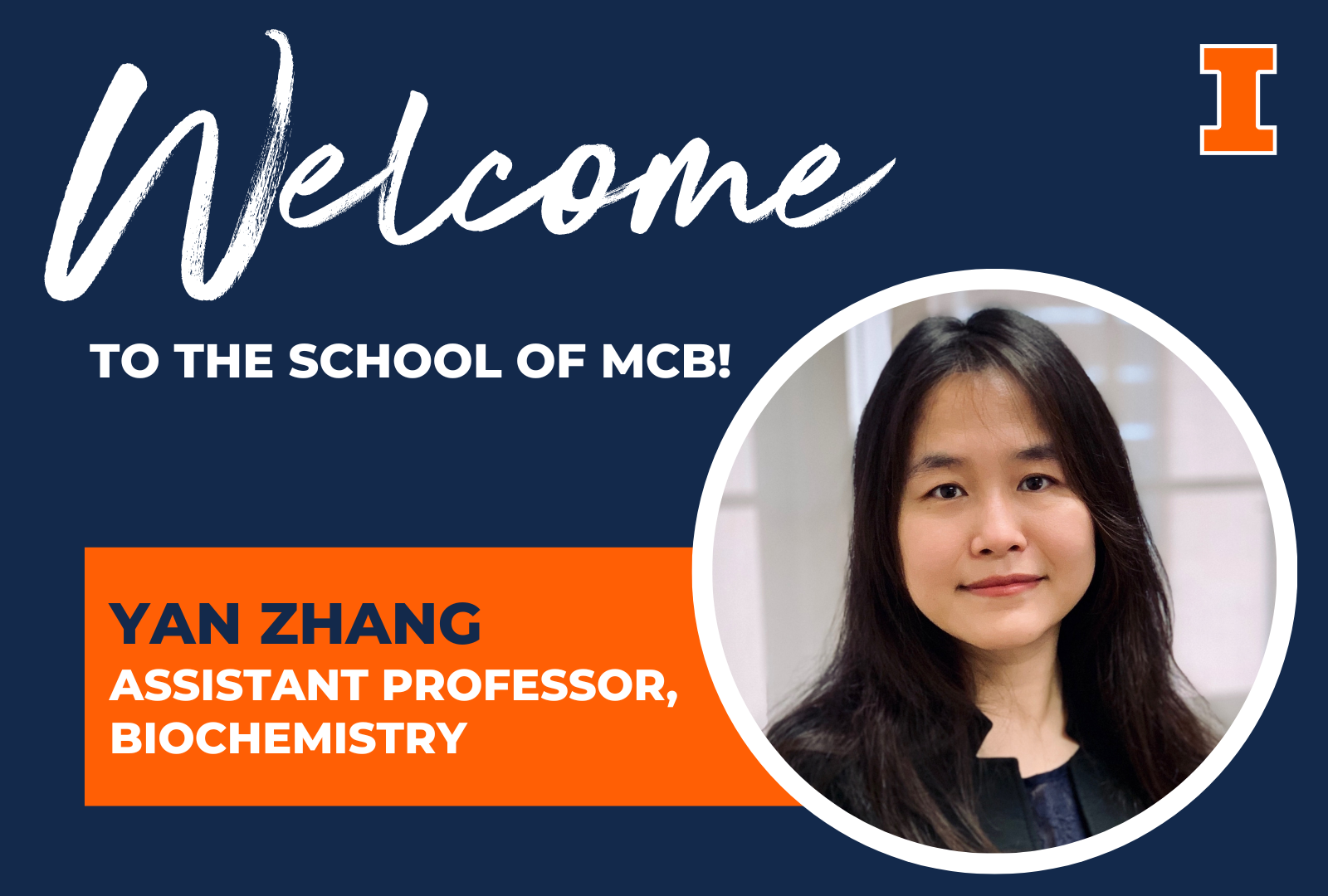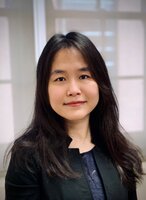
The School of Molecular & Cellular Biology and Department of Biochemistry are pleased to welcome Dr. Yan Zhang as assistant professor of biochemistry. Dr. Zhang joined us in November 2023 from the University of California, San Francisco, where she conducted her postdoctoral research.
Tell us about your lab and your research focus, including how you came to choose or specialize in this area.
The overarching goal of my research is to uncover the fundamental principles underlying bacterial homeostasis and survival in diverse and continuously changing environments. I have always been fascinated by how promptly and efficiently bacteria can adapt to stresses. Among the various pervasive challenges, temperature is a major one, requiring bacteria to adapt to both temperature extremes and fluctuations.
My postdoctoral research focuses on the bacterial cold shock response, which is the sum of cellular reactions required for efficient adaptation to a sudden temperature downshift. I am particularly interested in this system, because unlike most of the other stress responses that depend on transcriptional control, the cold shock response uses post-transcriptional regulatory strategies, whose underlying mechanisms remain largely unclear.
In my lab, we will combine multidisciplinary approaches to establish a cross-species comparison of bacterial cold shock responses at both the organismal and molecular levels, revealing gene functions important for post-transcriptional control and how they are regulated, likely providing new targets for drug development.
What is especially exciting about this particular area of research, at this time?
Understanding pervasive stresses often reveals new connections and regulation, as well as vulnerabilities of organisms. For example, studying the heat shock response revealed an elegant transcriptional network and started the proteostasis field with the discovery of chaperones. In contrast, the cold shock response is much less studied, because it is dominated by post-transcriptional regulation. Our knowledge gap about the post-transcriptional mechanisms is partially due to previous technical limitations. However, nowadays we have all the powerful tools to obtain a global quantitative blueprint of the response process and to dissect the molecular mechanisms of key regulators.
Taking advantage of the fast-developing next generation sequencing technologies, my lab will combine multiple omics approaches to identify the key regulators during cold shock response and investigate the global regulation of protein translation and RNA metabolism, which are direct targets of cold temperature. In addition, as temperature shifts can be challenges as well as signals triggering the development of the organism, the response strategies likely differ widely across species occupying different niches. The lack of knowledge about the response outside of E. coli highlights the huge potential of a cross-organismal research.
What interested you the most about becoming a faculty member in the School of Molecular and Cellular Biology and the University of Illinois?
The vibrant and collaborative environment in the School of MCB, which I experienced first-hand, when I presented at the Early Career Seminar series as a postdoc, as well as from my interactions with many scientists at UIUC. I am excited to become part of this community that boasts top-tier researchers and educators, alongside a cohort of intelligent students and supportive staff.
What are your teaching interests?
My teaching interests lie at the intersection of biochemistry, microbiology, and gene regulation. I am passionate about unraveling the complexities of biological systems and conveying this knowledge to students in an engaging and accessible manner. In addition, I would also like to introduce students to the cutting-edge molecular techniques and share my excitement about extracting new biological insights from data mining.
If any students (undergrad or grad) are interested in working in your lab, what’s your advice or how can they get in touch with you?
Please feel free to reach out to me anytime by emailing me at yanzuiuc@illinois.edu or dropping by my office.
Tell us about someone who made a difference in your life, such as someone who sparked your interest in biology, who encouraged you to pursue a career in academia or challenged your thinking about a topic.
My graduate school mentor played a pivotal role in sparking my enduring interest in microbiology. She shares a similar career trajectory with me, transitioning from a physics major to biology in graduate school. Her mentorship is not just about academic guidance but also extends to personal encouragement, emphasizing the adaptability and transferable skills that come with embracing diverse fields. She also encouraged me to establish quantitative methodologies to dissect gene regulation mechanisms, which becomes my long-term passion across multiple disciplinaries.
Another important person that has been instrumental in shaping both my academic and personal growth is my postdoc mentor. She is not only a distinguished researcher but also a remarkable educator. She is a passionate advocate for promoting diversity within the scientific community, and actively working to create an environment that values and welcomes individuals from all backgrounds. Her guidance on how to mentor students, emphasizing encouragement, and fostering a nurturing learning environment, has been invaluable to me. Furthermore, she consistently encourages me to pursue a career as a faculty member, which has been a guiding light through the pandemic and has fueled my aspiration for a future in academia.
What do you like to do in your free time?
I like hiking, photographing and exploring nature. In addition to enjoying the wonders of the outdoors, I also like cooking and trying different new recipes and protocols for my favorite dishes.
